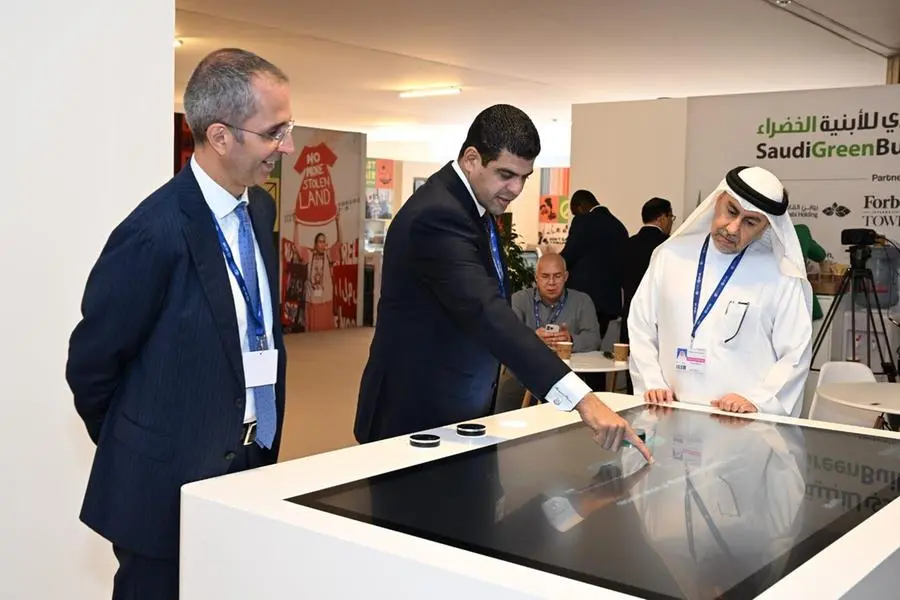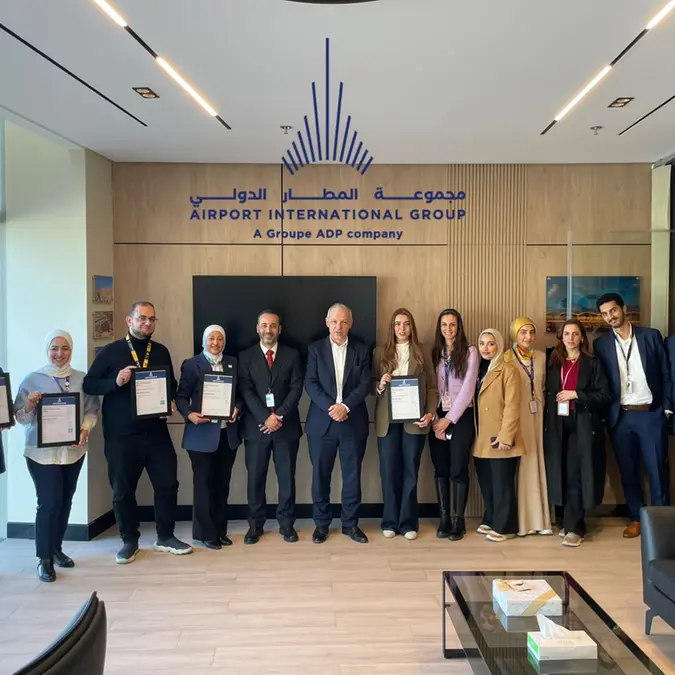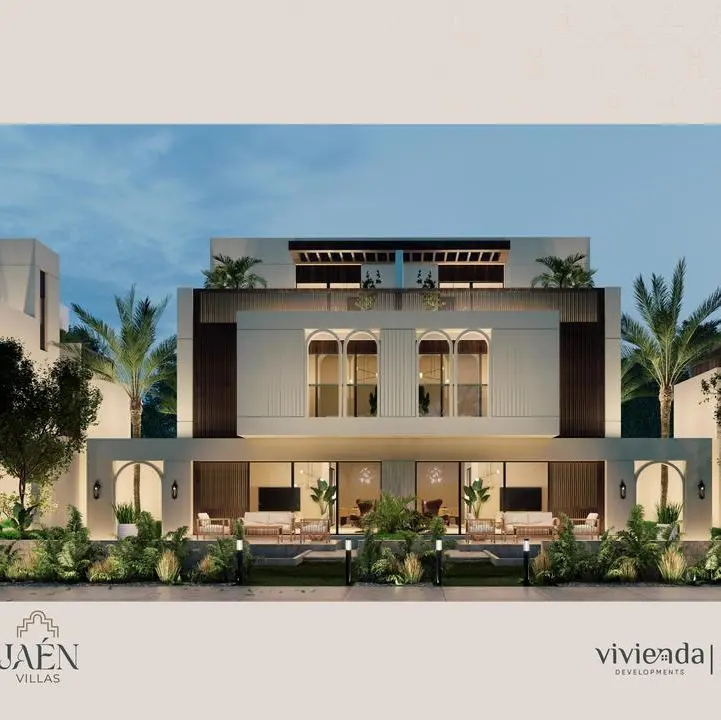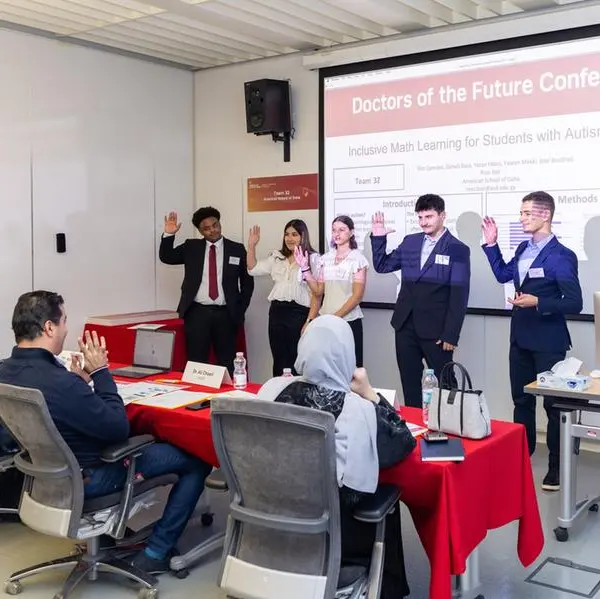PHOTO
Dr. Mahmoud Mohieldin, the UN Climate Change High-Level Champion for COP27 and UN Special Envoy for Financing the 2030 Sustainable Development Agenda and Dr. Rania Al-Mashat, Minister of International Cooperation, Egypt, among high profile speakers hosted by Magnom Properties at COP28
Magnom Properties, a subsidiary of Saudi Arabia’s Rawabi Holding, emphasised the urgent need for decarbonisation of the region’s construction sector and highlighted the importance of green buildings to drive climate change resiliency during its participation at the recently concluded 28th Conference of the Parties (COP28) to the United Nations Framework Convention on Climate Change (UNFCCC) held in the UAE.
Through a series of keynote sessions and panel discussions organised by the Saudi Green Building Forum (SGBF) at the Blue Zone at Expo City Dubai, Magnom Properties led the conversation on advancing the sector’s shift to the path of sustainability in the presence of regional ministers, government officials, UNFCCC leaders, climate action advocates, industry and business leaders, and sustainability consultants, among others.
Dr. Mahmoud Mohieldin, the UN Climate Change High-Level Champion for COP27 and UN Special Envoy for Financing the 2030 Sustainable Development Agenda, and Dr. Rania Al Mashat, Minister of International Cooperation, Arab Republic of Egypt, were among the high-profile speakers hosted by Magnom Properties at two panel sessions held at COP28 in Dubai.
In his keynote under the theme of "Financing Transition and unlocking climate financing in emerging markets", Dr. Mahmoud Mohieldin highlighted that COP28 has built on the success achieved by COP27 last year in Egypt in recognising the intricate link between climate finance and the UN Sustainable Development Goals (SDGs). Calling for implementing effective strategies on ground to accelerate climate action, he added that investments in sustainable cities, buildings and green infrastructure were critical to drive progress. He added that climate finance should not be narrowed down to funds’ availability and that an integrated system approach involving multiple stakeholders including both the public and private sectors is key to delivering the vision of decarbonising-built environments.
Highlighting the need to accelerate financing to support the implementation of SDG7 “to provide clean, affordable energy”, Dr. Rania Al Mashat, Minister of International Cooperation, Arab Republic of Egypt, recounted Egypt’s experience in financing green projects in collaboration with regional and international partners. Citing the example of Egypt’s Nexus of Water, Food and Energy (NWFE) Program, the Minister said that countries must be clear about the type of projects they are financing to align national goals with the UN SDGs.
Dr. Rania Al Mashat added that the NWFE platform can be implemented in other countries and provided an overview of the efforts of the various partners including multilateral and bilateral development partners, the private sector, investment funds, international coalitions for climate action, international institutions, and ministries to mobilise resources and implement infrastructure projects that serve both development and climate goals. This is achieved through fair and innovative financing tools that support Nationally Determined Contributions, highlighting the opportunities in financing renewable energy projects in Egypt in line with its vision to become a sustainable energy hub through investments and accessible financing for the private sector.
Dr. Rania also stressed the importance of adopting circular economy concepts when financing buildings to support carbon emission reductions and enhancing savings in energy and water.
Participating in the discussions and showcasing its efforts to reduce carbon emissions in the buildings and construction sector, Magnom Properties presented an overview of the Forbes International Tower, a lifecycle net negative carbon tower coming up in the UAE, Saudi Arabia and Egypt. The futuristic commercial tower follows a revolutionary sustainable model that harnesses the power of its environment to push the boundaries of modern construction. Envisioned by Adrian Smith + Gordon Gill Architecture (AS+GG Architecture), the Forbes International Tower features integrated photovoltaic solar systems and harnesses the potential of a hydrogen-based fuel cell system for on-site renewable power generation.
In his opening remarks, Osman Ibrahim, CEO, Rawabi Holding and Vice Chairman, Magnom Properties, drew attention to the crucial role of green buildings in elevating the standards of sustainability and environmentally responsible practices in the region’s real estate sector.
Speaking at the panel session titled ‘Start-ups driving sustainable innovation in the region’, Maged Marie, Chief Executive Officer of Magnom Properties, pointed out how the partnerships across sectors have been vital in powering the lifecycle net negative carbon vision of the Forbes International Tower.
Architect Gordon Gill, Founding Partner of AS+GG Architecture, who is helming the design of Forbes International Tower also discussed how the iconic tower’s sustainability vision marks a new paradigm shift in construction.
With buildings responsible for nearly 40% of global energy-related carbon emissions, the Forbes International Tower reinforces the commitment of both Rawabi Holding and Magnom Properties to accelerate decarbonisation of the built environment and shape a better future for all by delivering solutions that address the challenges of urbanisation and climate change.
This vision aligns with the Buildings Breakthrough Initiative launched at COP28 that aims at making net-zero and resilient buildings the new standard by 2030. Underlining the importance of cities when it comes to climate change, Maimunah Mohd Sharif, UN-Habitat’s Executive Director, said; “The way we build our cities now will determine future emissions. Housing and buildings are at the core of climate resilience.”



















